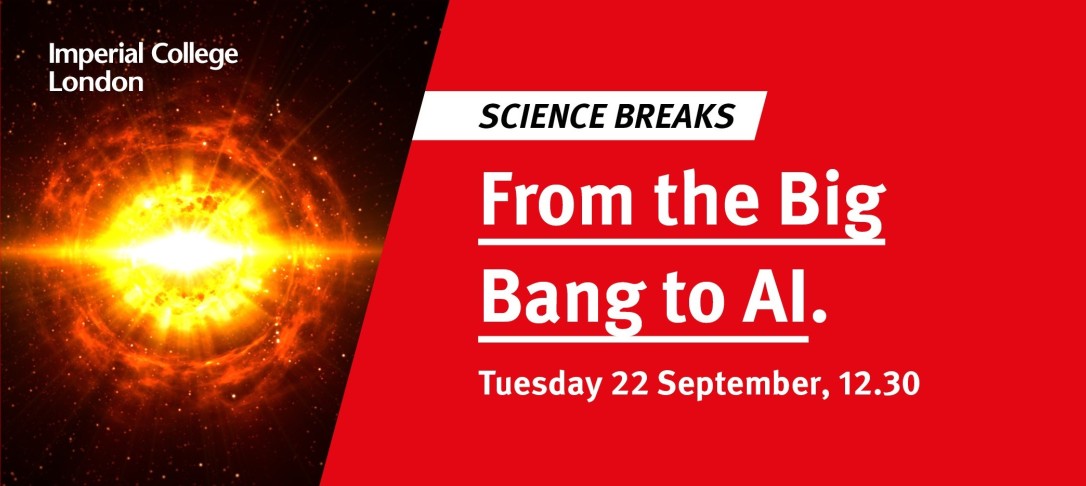
Join Professor Roberto Trotta as he discusses how AI and Machine Learning are helping us hunt for dark matter.
Abstract
At the beginning of last century, the Nobel Prize Winning physicist Ernest Rutherford reportedly believed that “If your experiment needs statistics, you ought to have done a better experiment”. And yet today, advanced astrostatistical methods belong to the toolbox of every cosmologist, and Artificial Intelligence (AI) is poised to change how we look at the Universe.
Last year, Professor Roberto Trotta gave his Inaugural lecture and discussed how astrostatistics will meet the challenges posed by big data to help answer fundamental questions of the cosmos: what is the Universe made of? How did it begin? What will its ultimate destiny be? You can watch this lecture here: From the Big Bang to AI.
In this latest event in the Science Breaks series, Professor Trotta will expand on his Inaugural lecture, discussing how AI and Machine Learning are helping us hunt for dark matter. He will also delve into the latest research on dark matter lurking in the centre of our own Galaxy, the Milky Way: What do we know, and how do we find out more?
Biography
Roberto Trotta is Professor of Astrostatistics at Imperial College London. His research in cosmology aims at elucidating the nature of dark matter and dark energy in the cosmos, which together account for 95% of the contents of the universe. He is also a Visiting Professor of Cosmology at Gresham College, London.
He was born and grew up in the Italian speaking part of Switzerland. After obtaining an MSc(Hons) in Physics from ETH Zurich and a PhD in Theoretical Physics from the University of Geneva, he was the Sir Norman Lockyer Fellow of the Royal Astronomical Society at Oxford University, and a Junior Fellow of St Anne’s College, before being appointed at Imperial in 2008.
Professor Trotta is an experienced science communicator, who develops novel ways of making abstract concepts in cosmology more tangible for the public at large, and seeks to make astronomy communication more inclusive. He has collaborated with chefs and human-machine interaction experts to design immersive experiences that convey cosmological ideas in a multi- sensory fashion. He is the recipient of numerous awards for his research, teaching and public engagement activities, including the Lord Kelvin Award of the British Association for the Advancement of Science, the Michelson Prize of Case Western Reserve University, the Chair George Lemaitre of the University of Louvain and two President’s Awards for Excellence at Imperial College London. His award-winning first book for the public, ‘The Edge of the Sky’ explains the Universe using only the most common 1,000 words in English, for which he was named one of the 100 Global Thinkers 2014 by Foreign Policy magazine. Professor Trotta was awarded the Annie Maunder Medal of the Royal Astronomical Society 2020 for his work in public engagement with cosmology. Outside Imperial, Professor Trotta is a Director and co-founder of Data Fusion Consultants, offering data analytical solutions derived from his research.
